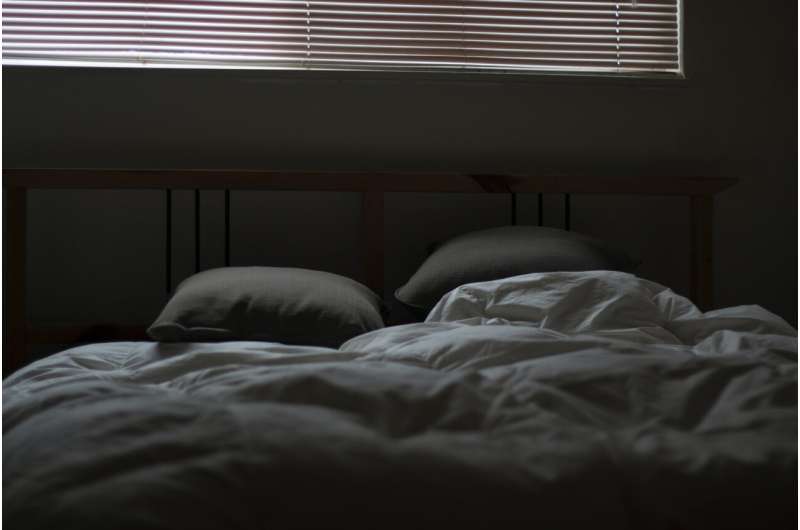This article has been reviewed according to Science X's editorial process and policies. Editors have highlighted the following attributes while ensuring the content's credibility:
fact-checked
trusted source
proofread
Research to reduce insomnia in autistic adults

Researchers from La Trobe University have conducted a world first pilot study investigating a sleep intervention for autistic adults, showing promising evidence at reducing insomnia and co-occurring anxiety symptoms.
Two in every 100 Australians is on the autism spectrum. It is known that autistic people can have trouble falling asleep and may wake for long periods at night, contributing to significant social, psychological and health burdens.
Led by Adjunct Professor Amanda Richdale from La Trobe University, and published in the journal Behavioral and Cognitive Psychotherapy, the study looked at Acceptance and Commitment Therapy adapted for insomnia (ACT-i), and tailored to autistic adults.
Professor Richdale said it is estimated that sleep issues affect up to 80% of autistic people across the lifespan.
"Poor sleep is linked to more behavioral difficulties, poorer mental health, particularly anxiety and depression, and some physical health conditions for autistic people," Professor Richdale said.
"Poor sleep may be related to the high anxiety and sensory issues often experienced by autistic people. Also, autistic people often experience disrupted sleep-wake circadian rhythms.
"Circadian rhythms are 24-hour rhythms controlled by our genes. Our sleep-wake rhythm is synchronized to 24-hours by sunlight and darkness which affect levels of the hormone melatonin. Melatonin is often given to help autistic people sleep, with mixed results," Professor Richdale said.
In the study, eight individuals (6 male, 2 female) aged between 18 and 70 years, with a clinical diagnosis of autism spectrum disorder, and mild, moderate/severe or severe insomnia participated in the trial.
Participants were assigned to one of two intervention groups (four per group) within a multiple baseline over time design for group. Participants completed sleep and mental health questionnaires before and after intervention, and at two-month follow-up. They also completed actigraphy 1 week before and after intervention, and a daily sleep diary before intervention till 1 week after intervention, and 1 week at follow-up.
Professor Richdale said there were significant improvements in the group that received the ACT-i therapy, suggesting this may be a way to treat both insomnia and anxiety in people with autism disorder.
"Better sleep can result in improvements in mental health and behavior," Professor Richdale said.
"Providing intervention supports for common co-occurring sleep issues in autism may provide an effective way to assist autistic children and adults to thrive.
"Despite the clear need for a focus on sleep in autism across the lifespan, good intervention research is still limited in children and is lacking for adults," Professor Richdale said.
More information: Lauren P. Lawson et al, ACT-i, an insomnia intervention for autistic adults: a pilot study, Behavioural and Cognitive Psychotherapy (2022). DOI: 10.1017/S1352465822000571




















